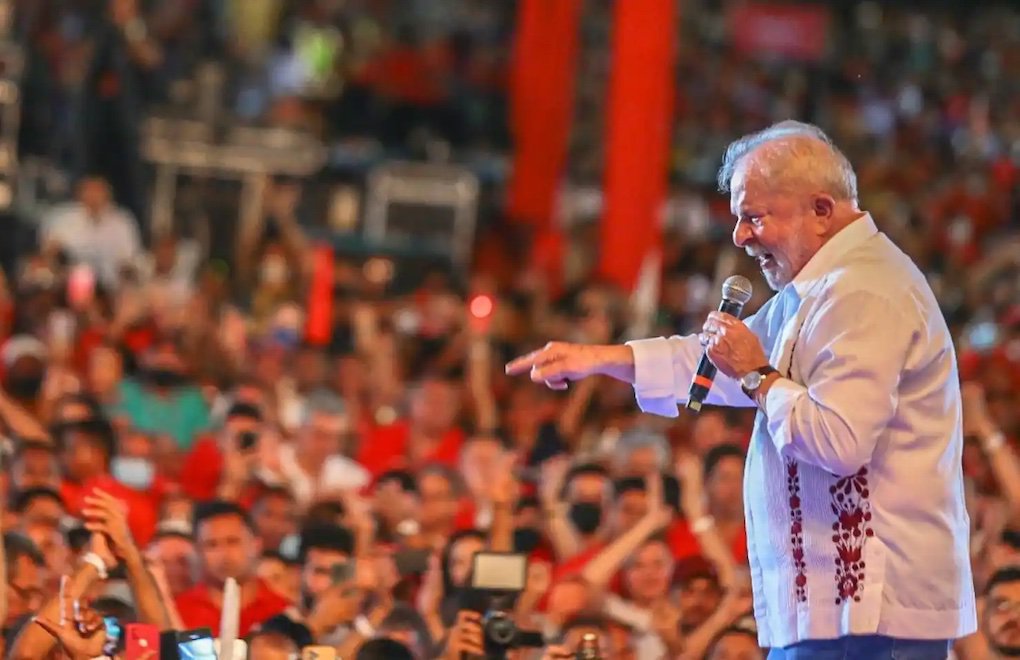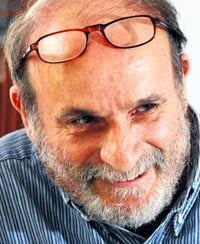Government Looks at West, Public at East
In a Tuesday public opinion poll by A&G Research Company 74.3 percent of those interviewed consider U.S.'s declaration of war and Turkish involvement in this war "wrong" while 23. 4 percent say "right" for such a government decision. The remaining 2.3 have "no comment" on the issue.
The schism between the government's attitude and the public sentiment is so apparent that, recent football matches in Istanbul have witnessed loud protests against the USA when the audience is called for standing for condolence for the victims of the brutal attack in New York on Sep. 11.
Yet Turkey's role in a prospective military operation against Afghanistan might not be as significant as it had been during the time of the Gulf War as reflected by Turkey's mainstream media complaints on Wednesday that "President George W. Bush is yet to call prime minister Bulent Ecevit."
Daily Sabah recalls the Gulf War days when then Turkish Prime Minister Turgut Ozal displayed close cooperation with father Bush in campaigning for land operations through Turkey's Iraqi borders.
However, worried of prospective exclusion from playing a key role in regional developments in case of extensive U.S. operations in the Middle East and the Gulf region, Turkish leaders are considering the situation in depth.
Reportedly, Turkey's high military and intelligence officers and political leaders have Tuesday considered the government's responsibilities and related preparations within the context of the Article 5 of North Atlantic Treaty Organization (NATO).
A member since 1951, Turkey with 800 thousand troops maintains the NATO's biggest armed forces in Europe and seconds the USA within the treaty organization.
"We will respond positively to any US demand that be," Turkish Prime Minister Bulent Ecevit, following a Tuesday reception in the USA Embassy in Ankara, told journalists.
"Turkish public have been deeply agonized of the attacks on the USA," prime minister told. "For, Turkey in the last two decades have suffered much from international terrorism," Ecevit added, implying Turkey's war against the Kurdish guerrilla PKK, what have cost the lives of total 30 thousand people.
"All intelligence organizations of the civilized countries of the world should act in solidarity," he told journalists.
Turkish government expects that enforcement of Article 5. of the NATO treaty in terms of a "terrorist attack against a member country" would provide Ankara closer European cooperation for prosecution of fugitive "Turkish and Kurdish terrorists" who Ankara claims have been harbored in the European countries.
Particularly Kurdish PKK (Kurdistan Workers Party), left wing DHKP-C (Revolutionary People's Liberation Party-Front) and extreme Islamist fundamentalist groups such as "Kaplancilar", have been tolerated of their activities against Turkey by most European governments Ankara believes.
The European definition of "terrorism" has always been looser than its real content and Turkey's demands for joint prosecution and extradition of "the terrorists" have been refuted due to arbitrary criteria, Turkish officials believe.
However, the Turkish-European controversy on "terrorism" essentially hinges around "death penalty". Turkey remains the sole Council of Europe member where "capital punishment" is included in the domestic law. Most European countries however have long abolished death penalty and refuse Turkey's demands on that ground.
Even the PKK leader Abdullah Ocalan had been handed over to Turkey in 1999 by the US intelligence on an unofficial moratorium for Ocalan's probable execution.
A constitutional amendment for abolishing death penalty in line with Turkey's "National Programme" for accession in the EU is already discussed in the parliamentary commissions to be voted in the coming weeks.
"The US has always lent us firm support for combating terrorism," Ecevit told. "We have not received similar understanding from some of our West European allies."
Aside from the Islamist opposition parties in the parliament, Turkey's political establishment unites around the government's position.
The Islamist SP (Happiness Party) and splitter AKP (Justice and Development Party), albeit strongly denouncing the "terrorist attack on the USA" call for "refraining from fanning a conflict of religions".
Islamist human rights organization Mazlum-Der (Human Rights Association of the Oppressed People) is worried that "US sponsored jingoism might encourage those countries who have based their governance on human rights violations for further violations."
"Turkey should refrain from supporting military operations what might inevitably target the innocent civilians in Kabul or elsewhere," urges Mazlum-Der chair Yilmaz Ensarioğlu.
"Public sensitivity, NGO opposition and parliamentary determination would prevent the government from drifting the country into an adventure," he told.
Ironically, the staunch secularist-nationalists, bitter foes of the Islamists converge on a similar position against Turkish involvement in a military campaign around a US axis.
Bitterly criticizing Minister of State Kemal Dervis's statement that "Turkey should lend unconditional support for Washington," columnist Ilhan Selcuk of daily Cumhuriyet labels his position as "capitulationism before the US interests."
"What if the 'big boss' would prefer deploying Turkish troops in Afghanistan instead of the American," Selcuk asks. "One bargains even for simple shopping. Here what is at stake are the lives of people."
Randomly interviewed by news website "bianet" ordinary Turkish citizens reflect a rather more non-committed stance than the government's regarding the U.S. understanding of the conflict.
"The U. S. indeed seeks for carving a strategical position in the hearth of the Asian continent," believes architect, Onder Güldiz from Istanbul.
Retired civil servant Ismail Cavusoglu from northern Samsun opposes the prospect that "Turkey might become a vanguard post of the US." It is up to the US how to combat terrorism", he believes. "But they should not touch the civilians," he adds.
Grocer Samet Ozsoy from Istanbul is that much concerned with his economic difficulties arising from the ongoing financial crisis that, "I am totally indifferent to anything else than survival," he says.
Lottery agency Yasar Adanali believes that "Turkey's siding with US is absurd. I am afraid the bill for the war is going to be charged on us as it had been in the Gulf War. I am against war."
Diyarbakir Democracy Platform an ad hoc umbrella grouping of the NGOs from Turkey's Diyarbakir province, the biggest Kurdish populated city in Turkey, in a public statement calls for "stopping the war"
Urging for building up of "global anti-war front of the labor organizations, human rights activists" the platform underlines that "the conditions and circumstances that generate terrorism" should be eradicated first and foremost."
Denouncing the attack on Sep. 11 as "inhumane" Ufuk Uras the chair of the left wing Freedom and Solidarity Party, however points his finger to the "past US policies of supporting the prime suspect Osama bin Ladin and the Taliban movement for selfish strategic interests."
Strongly refuting the concept of "crusading" Uras points to the fact that the global standard is "multi-racial and multi-cultural societies where Muslims and adherents of other beliefs coexist together."
"The crusaders mentality ruins that coexistence of cultures," he adds.
"Turkey should not provide military bases and opportunities for US operations," he urges. "we still remember the bitter lessons of the Gulf War and we will spare our country from further disasters."
The long and hot summer ahead
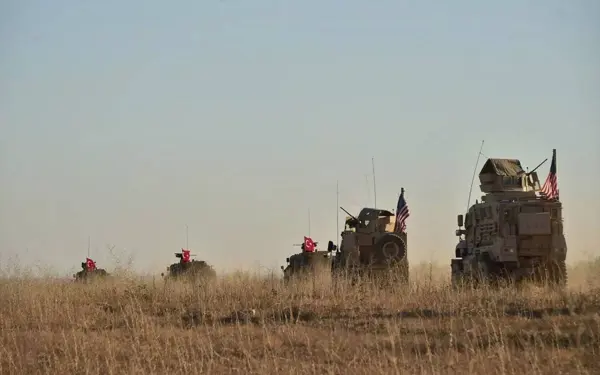
'Shamelessness'
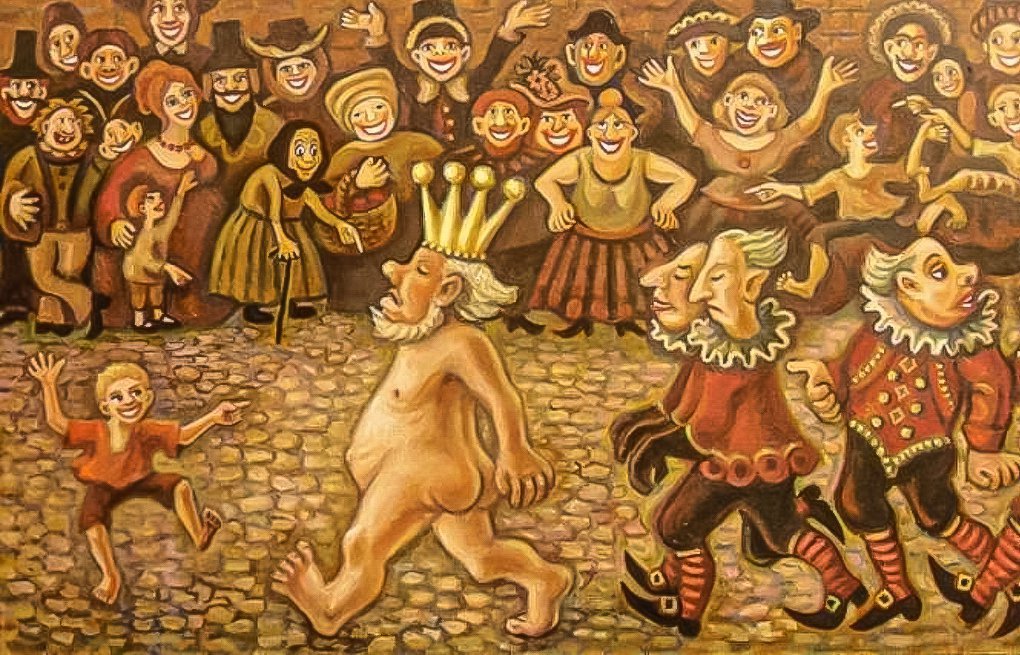
LEFT TIDE IN LATIN AMERICA-III
The new task: 'To contribute the reintegration process, to recover the lessons of the Cuban revolution'
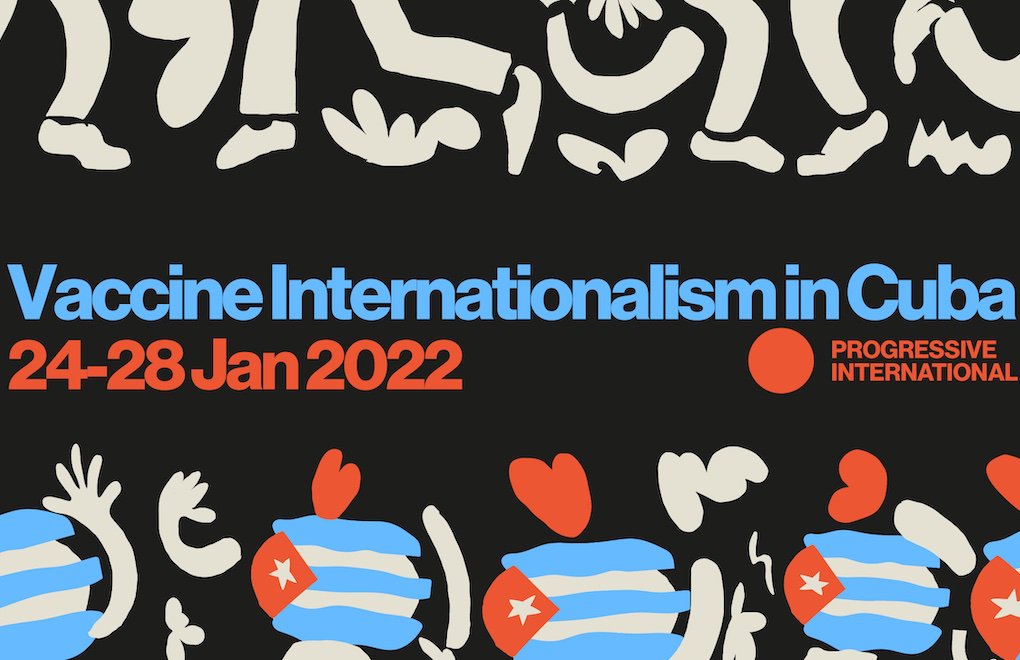
LEFT TIDE IN LATIN AMERICA-II
An International to accompany the continental rise of the Left
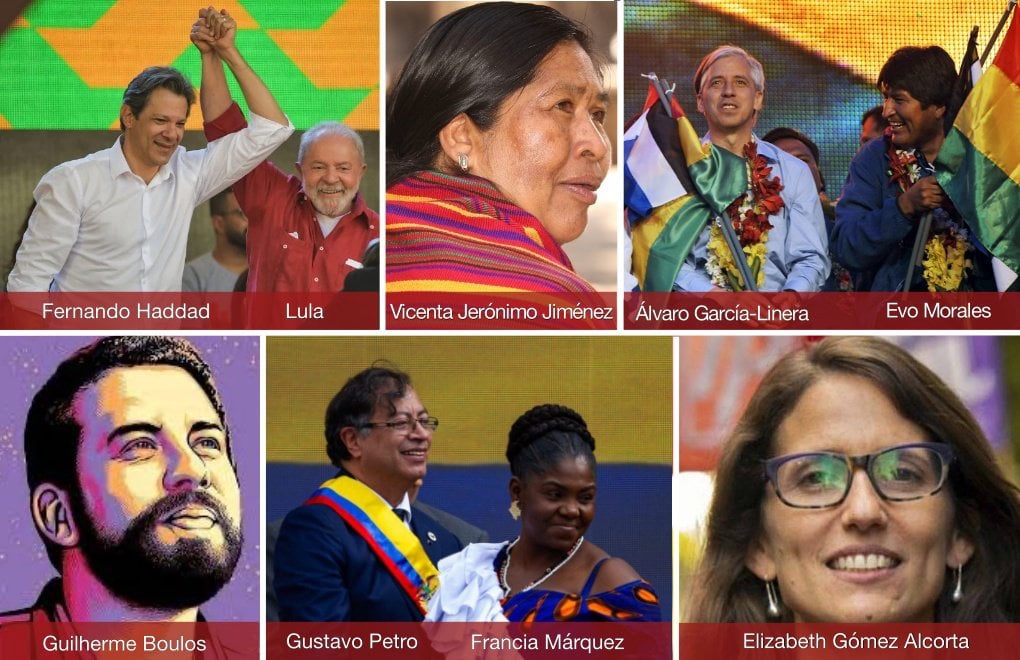
LEFT TIDE IN LATIN AMERİCA-I
David Adler: "A new vision that is feminist, ecologist, and pluralist"
